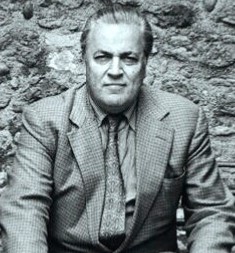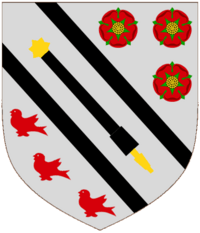Anthony Quinton facts for kids
Quick facts for kids
The Lord Quinton
|
|
|---|---|
 |
|
| Born |
Anthony Meredith Quinton
25 March 1925 |
| Died | 19 June 2010 (aged 85) United Kingdom
|
| Occupation | Philosopher |
Anthony Meredith Quinton, Baron Quinton (born March 25, 1925 – died June 19, 2010) was an important British philosopher. He was known for his work in political philosophy, moral philosophy, and the philosophy of mind. He was also a FBA, which means he was recognized for his excellent work in the humanities and social sciences.
Contents
Life of Anthony Quinton
Anthony Quinton was born in Gillingham, Kent, in the United Kingdom. He was the only son of Richard Frith Quinton, who was a Surgeon Captain in the Royal Navy.
He went to Stowe School and then to Christ Church, Oxford, one of the famous colleges at Oxford University. There, he studied Philosophy, Politics, and Economics and did very well.
After finishing his studies, he became a Fellow at All Souls College in 1948. Later, in 1955, he moved to New College, Oxford. From 1978 to 1987, he was the President of Trinity College, Oxford, which is a big leadership role at the university.
Beyond his university work, Quinton was also the president of the Aristotelian Society from 1975 to 1976. This is a group for philosophers. He also led the board of the British Library from 1985 to 1990.
In 1983, he was given a special title: Baron Quinton. This made him a life peer, which means he became a member of the House of Lords, part of the UK Parliament, for the rest of his life. He was a member of the Conservative Party.
Many people also knew Anthony Quinton from BBC Radio. He was a popular presenter on the long-running show Round Britain Quiz.
What is Philosophy?
Anthony Quinton had some interesting ideas about what philosophy is. He even gave a short and simple definition.
Quinton's Short Definition
He said:
The shortest definition, and it is quite a good one, is that philosophy is thinking about thinking. That brings out the generally second-order character of the subject, as reflective thought about particular kinds of thinking – formation of beliefs, claims to knowledge – about the world or large parts of it. — The Oxford Companion to Philosophy, p. 666 (1st ed.)
This means philosophy is like thinking deeply about how we think, how we form our ideas, and how we know things about the world.
Quinton's Longer Definition
He also gave a more detailed explanation:
Philosophy is rationally critical thinking, of a more or less systematic kind about the general nature of the world (metaphysics or theory of existence), the justification of belief (epistemology or theory of knowledge), and the conduct of life (ethics or theory of value). Each of the three elements in this list has a non-philosophical counterpart, from which it is distinguished by its explicitly rational and critical way of proceeding and by its systematic nature. Everyone has some general conception of the nature of the world in which they live and of their place in it. Metaphysics replaces the unargued assumptions embodied in such a conception with a rational and organized body of beliefs about the world as a whole. Everyone has occasion to doubt and question beliefs, their own or those of others, with more or less success and without any theory of what they are doing. Epistemology seeks by argument to make explicit the rules of correct belief formation. Everyone governs their conduct by directing it to desired or valued ends. Ethics, or moral philosophy, in its most inclusive sense, seeks to articulate, in rationally systematic form, the rules or principles involved. ibid
In simpler terms, Quinton explained that philosophy involves:
- Metaphysics: Thinking about the basic nature of the world and what really exists.
- Epistemology: Looking at how we know things and how we can be sure our beliefs are true.
- Ethics: Thinking about how we should live our lives and what is right or wrong.
He believed philosophy uses careful, critical thinking to explore these big questions in an organized way.
Writings
Anthony Quinton wrote many books and papers on philosophy, including:
- Spaces and Times (1962)
- Political Philosophy (editor) (1967)
- The Nature of Things (London, 1973)
- The Politics of Imperfection: The Religious and Secular Traditions of Conservative Thought in England from Hooker to Oakeshott (1978)
- Utilitarian Ethics (1973)
- Francis Bacon (Oxford, 1980)
- Thoughts and Thinkers (1982)
- From Wodehouse To Wittgenstein (1998)
Arms
|
 | Aurelia Browder |
 | Nannie Helen Burroughs |
 | Michelle Alexander |



